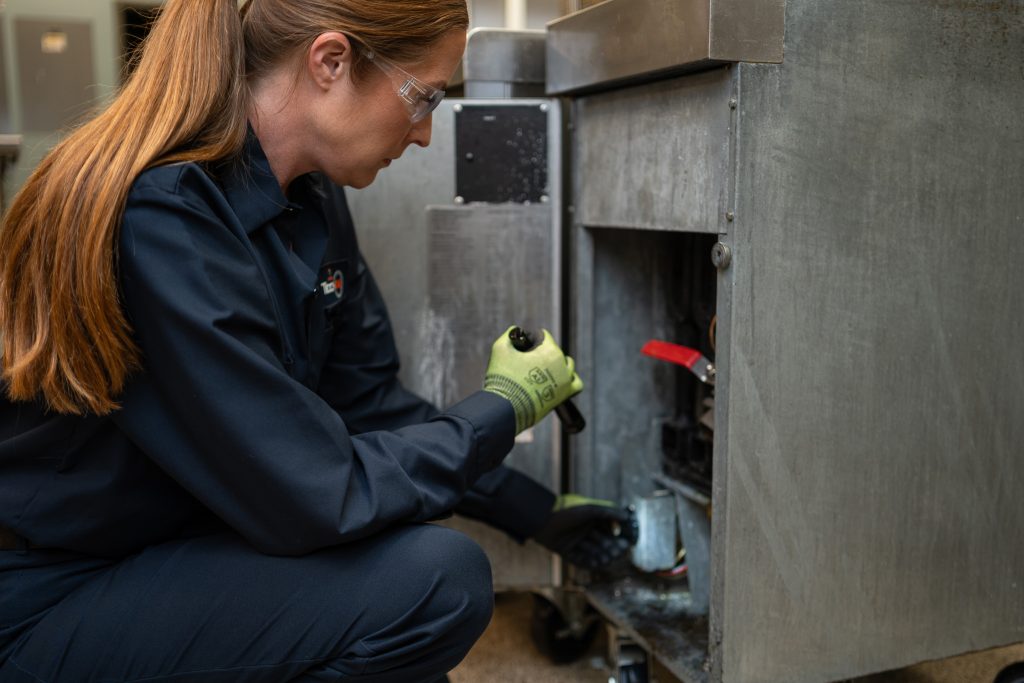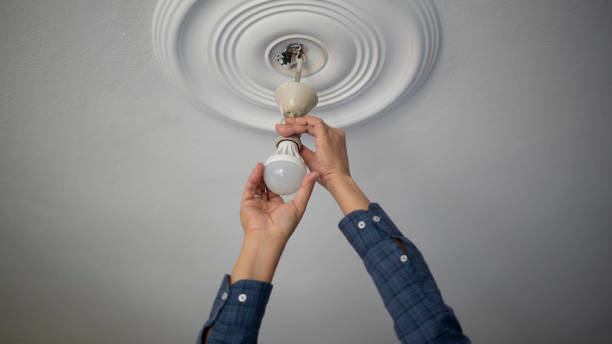When something in your home breaks or stops working, your first instinct may be to fix it yourself. After all, DIY projects can seem like a great way to save money. However, there are many situations where calling a professional repair service is the safer and more effective option. Understanding when to choose a DIY solution and when to hire a professional is crucial for both your safety and the longevity of your appliances or systems.

In this blog, we’ll compare DIY repairs vs. professional repairs, breaking down the pros and cons of both approaches and helping you make the right decision when a problem arises. From cost considerations to safety, we’ll explore key factors to consider before picking up your toolbox or dialing a repair service.
1. The Appeal of DIY Repairs
DIY repairs are attractive to many homeowners for a variety of reasons. One of the most significant advantages is the potential cost savings. Instead of paying a professional for labor and service fees, you can buy the necessary tools and materials yourself, completing the job on your own time. Moreover, with the help of online tutorials and instructional videos, tackling minor repairs has never been easier.
Pros of DIY Repairs:
- Cost Savings: No labor costs, which can sometimes be more than half the cost of the repair.
- Sense of Accomplishment: Fixing something yourself can be rewarding and give you a sense of achievement.
- Flexibility: You can work at your own pace, without needing to fit a professional’s schedule.
- Convenience: Small tasks like replacing a light fixture or unclogging a drain can be done quickly with minimal effort.
However, despite these benefits, there are limits to what DIY can achieve, especially when it comes to more complex or hazardous repairs.
2. The Advantages of Professional Repair Services

While DIY repairs can be appealing, there are situations where a professional repair service is a much better option. Trained experts bring several benefits that DIY simply can’t match, including experience, expertise, and access to specialized tools. A professional repair technician can quickly diagnose the issue, fix it correctly, and prevent any future complications.
Pros of Professional Repairs:
- Expert Knowledge: Professionals have specialized training and experience to tackle a wide range of issues, from electrical faults to complex appliance repairs.
- Time Efficiency: Professionals can fix a problem much faster than an inexperienced DIYer, especially with intricate or time-consuming repairs.
- Safety: Repairing certain items—like electrical wiring, gas lines, or major plumbing issues—can be dangerous if done incorrectly. Professionals follow strict safety protocols to ensure the job is done safely.
- Warranty: Many repair services offer warranties for their work, providing peace of mind that the repair will hold up.
- Long-Term Savings: Although it may be more expensive upfront, professional repairs can save you money in the long run by ensuring the problem is properly addressed and preventing future breakdowns.
In cases involving major repairs, specialized equipment, or safety concerns, hiring a professional is the safest and most reliable option.
3. When to Tackle a Repair Yourself
There are certain situations where tackling a repair yourself is perfectly acceptable—and even preferable. Minor repairs that don’t require special tools or extensive expertise can be easily handled by a DIYer. If you feel comfortable and have the right materials, small tasks like fixing a leaky faucet or replacing a broken light switch are ideal for DIY.
Examples of Repairs You Can DIY:
- Replacing Air Filters or Light Bulbs: These are basic tasks that don’t require professional help. Regularly changing air filters can even improve the efficiency of your HVAC system.
- Unclogging Drains or Toilets: Minor blockages can often be resolved with a plunger or simple drain cleaner. However, if the clog is deep or recurrent, it’s best to call a professional.
- Fixing Small Appliances: If the repair is simple, like replacing a broken microwave door handle or changing a blender’s motor, you can do it yourself.
- Basic Painting and Touch-Ups: If your walls are scuffed, a coat of paint can often be all that’s needed to restore them.
- Sealing Leaks: Small cracks or gaps in windows, doors, or around pipes can be sealed easily with caulk or weatherstripping.

Tip: If the repair involves significant risk (e.g., electrical work or major plumbing), or if you’re unsure of your skill level, it’s safer to call in a professional.
4. When to Call in a Professional Repair Service
There are specific repairs that require professional attention—either due to the complexity of the task or because of potential hazards involved. Certain household issues should never be tackled without expert knowledge and experience.
Examples of Repairs That Require Professional Help:
- Electrical Repairs: Working with electrical systems can be extremely dangerous if you’re not trained. Hiring a professional ensures the repair is done according to safety standards, preventing the risk of electrical shock, fires, or faulty installations.
- Gas Line Repairs: Gas-related issues, such as gas leaks or appliance malfunctions, should always be handled by a licensed professional to avoid fire hazards or poisoning.
- Major Plumbing Repairs: While minor clogs can be DIY, more significant issues like broken pipes, water heater malfunctions, or sewer line blockages require professional tools and expertise to fix without causing further damage.
- HVAC System Repairs: Heating, ventilation, and air conditioning systems are complex and often require specialized training and diagnostic tools to identify the issue and provide an effective fix.
- Appliance Repairs with Warranty Concerns: If an appliance is under warranty, attempting a DIY repair may void that warranty. In such cases, it’s best to call a professional authorized by the manufacturer to maintain your warranty coverage.

For these types of repairs, professional repair services are not just recommended—they are necessary to ensure safety, code compliance, and proper functionality.
Conclusion: Striking the Right Balance
In the debate between DIY vs. professional repairs, the right choice depends on the situation. For minor, straightforward issues that you feel confident tackling, DIY repairs can be a cost-effective and satisfying solution. On the other hand, more complex tasks, particularly those involving electrical, gas, or plumbing systems, should always be left to professionals to avoid costly mistakes, safety risks, and further damage.
To make the best decision:
- Evaluate the complexity of the repair.
- Consider your own skills and experience.
- Weigh the potential risks of a DIY job versus the peace of mind of hiring a pro.
Ultimately, whether you choose DIY or professional repairs, the most important thing is ensuring that the job is done safely and effectively. By knowing when to call a repair service and when to roll up your sleeves, you’ll save both time and money while keeping your home in top condition.
If you’re unsure whether to tackle a repair yourself or hire a professional, don’t hesitate to contact an expert for advice. And for more tips on home repairs and maintenance, be sure to explore our blog and share your experiences in the comments below!

Leave a Reply